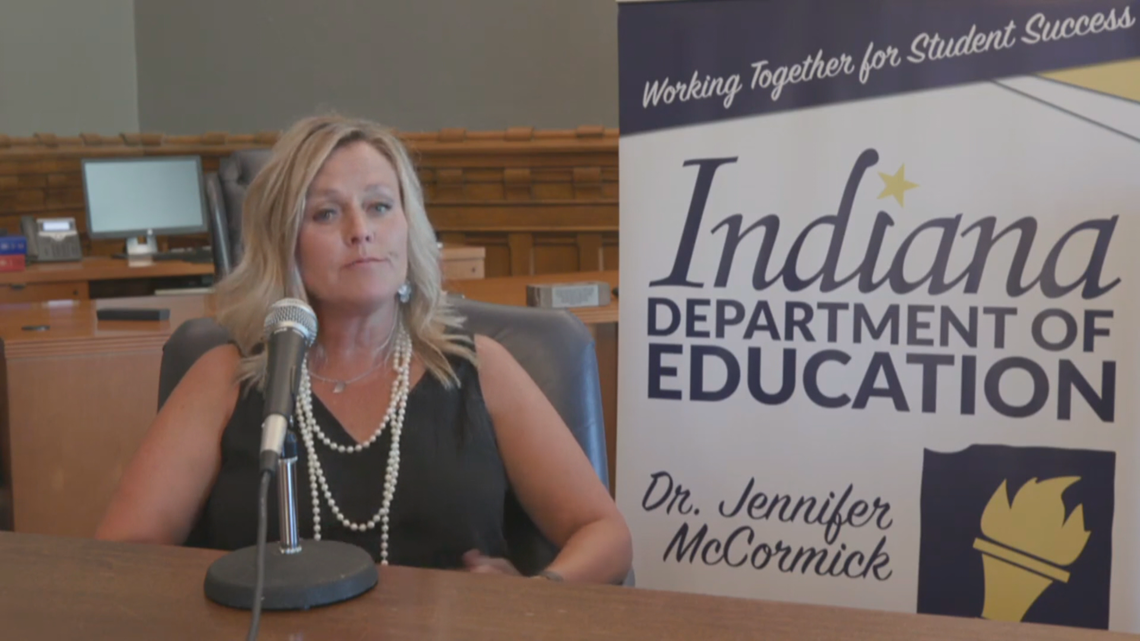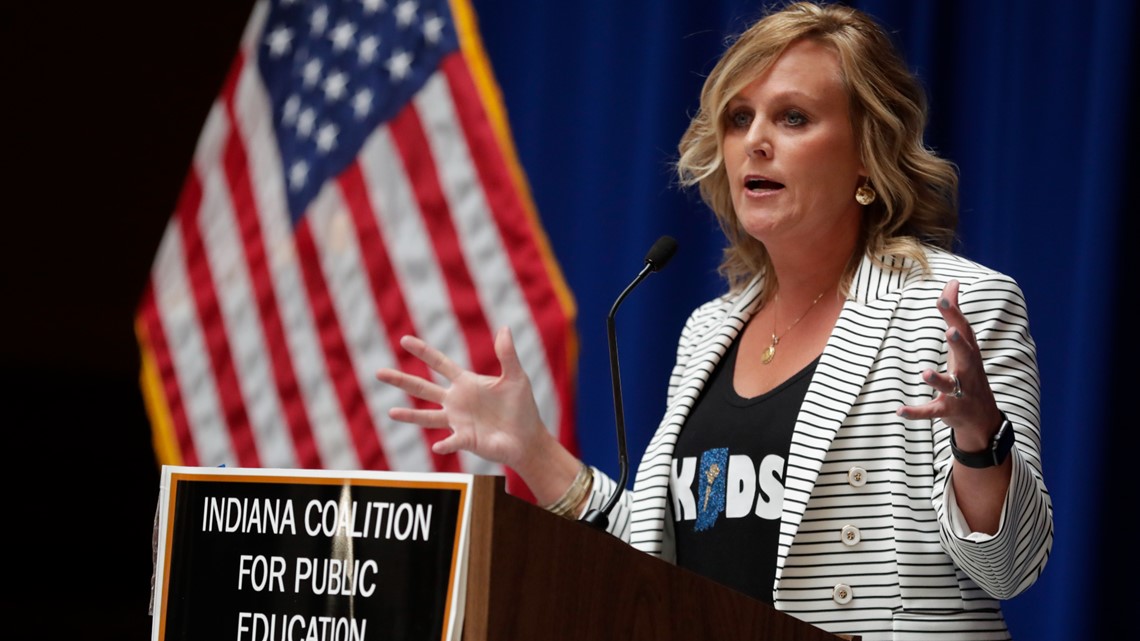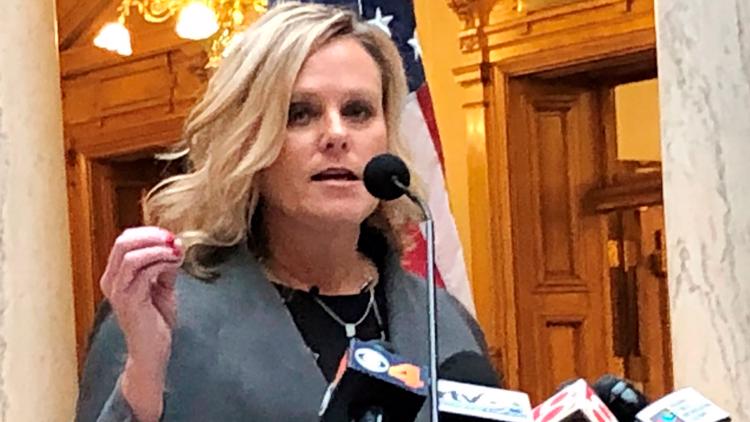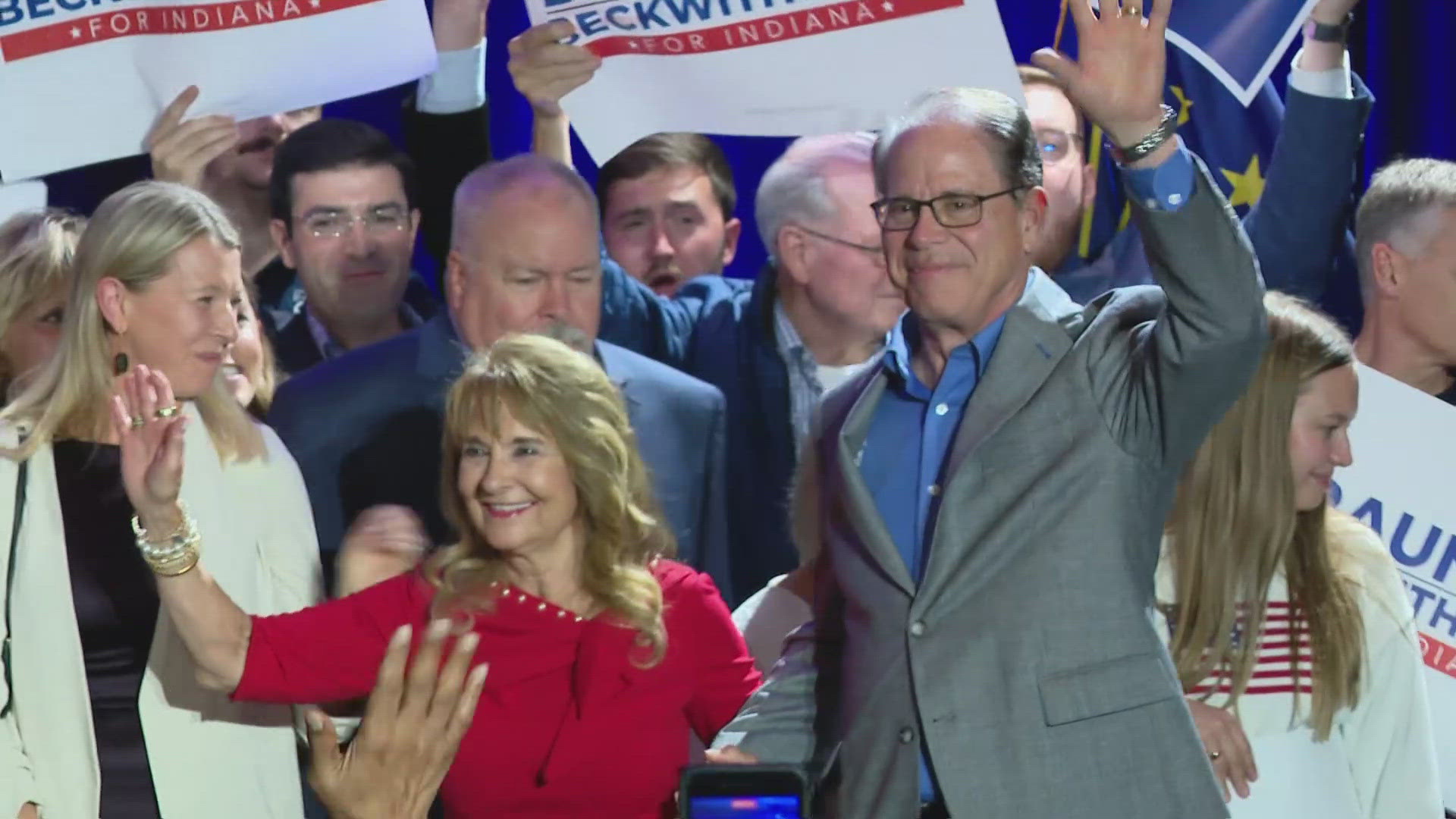INDIANAPOLIS — With Democrat Jennifer McCormick’s official entry into the 2024 Indiana gubernatorial race, Hammond Mayor Thomas McDermott Jr. has ruled out seeking the Democratic nomination.
“As for me, I don’t see the stars aligning for a McDermott candidacy in 2024 at this time,” McDermott told me in a text on Wednesday. Allies of former senator and current Vatican Ambassador Joe Donnelly had told me last year that he was leaving his political options open for 2024.
But for now, that leaves McCormick as the lone Democrat seeking the nomination. What she aims to do is exceedingly rare. There has been only one female Indiana gubernatorial nominee in history, when Jill Long Thompson won the Democratic nomination in 2008, only to lose to Gov. Mitch Daniels.
And, there have been only two party switchers to ascend to the governor’s office since the current two-party system took shape in 1856: Legendary Civil War Gov. Oliver Perry Morton in 1860 as a Republican and Isaac Gray in 1884 as a Democrat.
Beyond Jill Long Thompson, female gubernatorial candidates are relatively rare. Indiana is one of 18 states that has yet to elect a female governor. Lt. Gov. Suzanne Crouch is currently seeking the GOP nomination in 2024. District Attorney Virginia Dill McCarty was the first to run as a Democrat, losing to State Sen. Wayne Townsend in the 1984 primary. There were brief candidacies by Democrat State Sens. Vi Simpson in 2003, Karen Tallian and Superintendent Glenda Ritz in 2016 and Republican Lt. Gov. Becky Skillman in the 2012 cycle. Simpson, Tallian, Ritz and Skillman all failed to generate much fundraising traction and their candidacies were brief.
Ritz, who upset Republican Superintendent Tony Bennett in 2012, declared for governor in June 2015, before opting to seek reelection two months later. McCormick as a Republican defeated Ritz in 2016 by a 53% to 47% margin.
In October 2018, McCormick stunned the Hoosier political establishment, announcing she would not run for reelection in 2020, in part because of the General Assembly’s move in 2017 to make the superintendent position a gubernatorial appointment.
“As a parent, I would not be happy if my state superintendent were spending time on noise, and that’s simply what this has become,” McCormick said.


She toured the state with Democrat State Sen. Eddie Melton in 2019 exploring a potential run a year later. Democrats ended up nominating Woody Myers.
In her campaign video kickoff last Thursday, McCormick said, “In 2016, I successfully ran for state superintendent of public instruction to be a champion for Hoosier kids,” McCormick continued. “As state superintendent, I took on politics that were negatively impacting our schools and fought for what was right for kids, teachers, and parents. Now, I’m running for governor of Indiana because it’s time to put Hoosiers first. I will bring common sense and bipartisanship back to the Statehouse. I’ve already proved I will stand up to out-of-touch policies that are destroying public education, stripping Hoosiers of their rights and freedoms, and leaving rural communities behind.”
The other historical anomaly beyond gender and education politics is the current GOP supermajorities in the General Assembly, which have extended to an unprecedented five cycles since the two-party system began in 1856.
That has brought many smoldering divisive social issues to the fore, like banning books, critical race theory, limiting LGBTQ+ rights and a recent spate of transgender legislation. Speaking to the NWI Times’ Doug Ross, McCormick framed her candidacy in the “distractions” that prompted her not to seek reelection in 2020. “The answer is nothing other than as a distraction from the real problems because they’re complex and they’re difficult to solve.”
Speaking in front of the St. Joseph County courthouse in South Bend last week, McCormick focused on “beyond ridiculous” issues. “So we will start with book banning, really?” McCormick told WNDU-TV. “We’ll start with the bans on LGBTQ health care rights. I mean, the list goes on; we’ll talk about you now, public education, which services 90% of our kids, was the most underfunded system of all the schools. The one that services the smallest percentage of students got by far the majority of the money.”
McCormick ‘s campaign had $42,341 as of Jan. 17, with funds migrating from her past superintendent campaign. By comparison, the three GOP candidates have big money leads. Friends of Suzanne Crouch reported a year-end cash balance of $3.19 million. The campaign of Republican Eric Doden had $2.8 million and U.S. Sen. Mike Braun reported a cash balance of $2.9 million.


If McCormick is the only credible Democrat to seek the nomination, she can potentially make this a competitive race by capturing the divisive issue outflows on abortion, gun reforms and LGBTQ+ rights.
For instance, last November’s Ball State Hoosier Survey revealed that 56.7% believe abortion should be legal in all or most cases, while 76% find abortion to be an important issue. McCormick tweeted this past week, “Women want to live, work, and thrive where access to medical care is not banned or limited. States who respect this and operate accordingly win.”
The Republican primary will likely find the three candidates shifting to the right on abortion and gun reforms. Crouch made it a point to note her tie-breaking Indiana Senate vote on an abortion exception amendment last July. That will be an asset in the primary, but a potential liability in the general.
The columnist is managing editor of Howey Politics Indiana/State Affairs at StateAffairs.com/pro/Indiana. Find Howey on Facebook and Twitter @hwypol.



